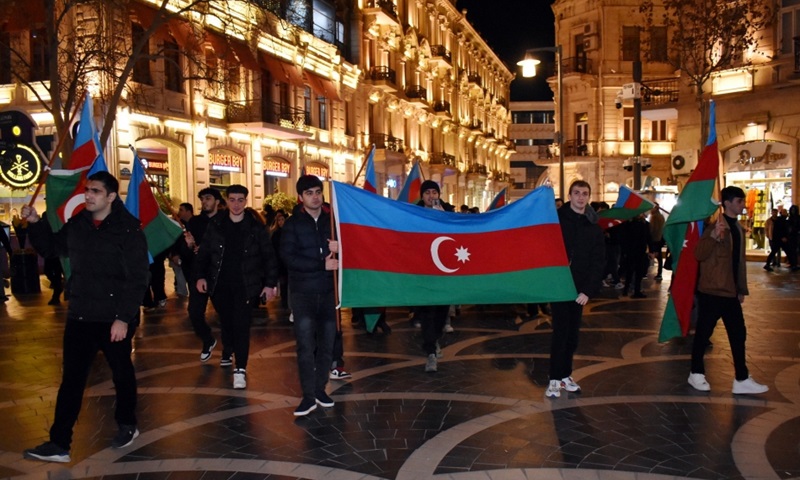Azerbaijan’s President Ilham Aliyev secured his fifth consecutive term in office, after receiving more than 93% of the votes on February 7, according to exit polls.
The outcome of the election was widely anticipated following Azerbaijan’s significant triumph over Armenian separatists in the Nagorno-Karabakh region last year.
Aliyev ran against six other candidates although none were critical of his rule.
Aliyev’s victory was resoundingly evident in the tallies, where he garnered an impressive 92% of the vote across nearly all electoral precincts, amidst a backdrop of limited media freedom and the absence of any substantial opposition.
Mazahir Panahov, the chief of the Central Election Commission, officially declared Aliyev’s re-election during a press conference, highlighting a robust turnout of 67.7%.
The electoral landscape, however, was marked by the notable absence of significant opposition participation, with the main opposition parties opting to boycott the proceedings, denouncing the electoral process as a mere façade of democracy.
Ali Kerimli, leader of the Popular Front party, decried the conditions in Azerbaijan as unsuitable for free and fair elections, characterizing the event as an “imitation of democracy.”
“There are no conditions in the country for the conduct of free and fair elections,” he said.
The electoral stage was dominated by Aliyev, with the remaining six candidates offering minimal challenge, each expressing admiration for Aliyev’s leadership since the announcement of the snap election in December, a year ahead of schedule.
Celebrations erupted among Aliyev supporters, who congregated in the streets of central Baku, extolling their leader as the liberator of Karabakh and expressing pride in his leadership. Meanwhile, Aliyev and First Lady Mehriban Aliyeva exercised their voting rights in Karabakh, underscoring the region’s integral role in the electoral process.

Aliyev first took office in 2003, following the death of his father, Heydar Aliyev. His family seized power in 1993, two years after Azerbaijan gained independence from the former Soviet Union.
The victory represented a significant milestone in Azerbaijan’s post-Soviet trajectory, with the inclusion of polling stations in Karabakh for the first time, symbolizing a unified electoral process across the nation. However, the region’s demographic shift, precipitated by the exodus of its ethnic-Armenian population following Baku’s reassertion of control, underscored the complex geopolitical dynamics at play.
Aliyev’s triumph has been heralded as a transformative moment in Azerbaijan’s history, coinciding with his characterization of the Karabakh victory as an “epochal event.”
Azerbaijan was not due to hold presidential elections until 2025, but Aliyev moved the polls forward after Baku took back control of the breakaway region of Nagorno-Karabakh in September.
Supporters commended Aliyev for his role in steering Azerbaijan from its Soviet past to a thriving energy supplier in Europe. Nevertheless, detractors accused Aliyev of stifling dissent and dynastic rule, epitomized by constitutional amendments enabling extended presidential terms.
The election has drawn criticism from human rights group Amnesty International, which accuses authorities of repressing freedom of expression and targeting critical voices of the president.

